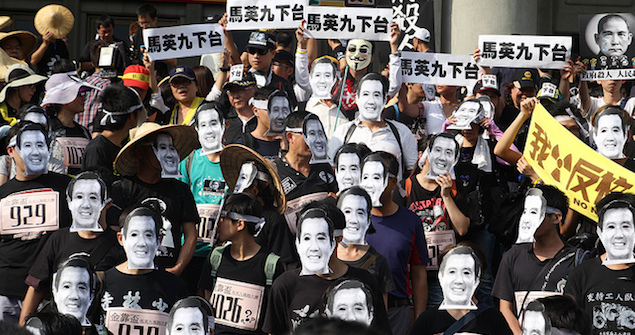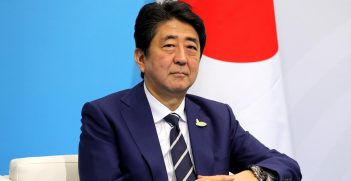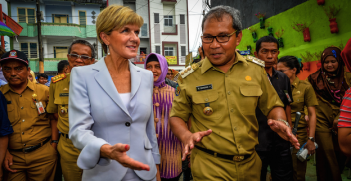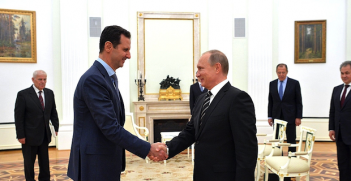Taiwan's Ruling Party Suffers After Elections

Stratfor analyses the Taiwanese election results and President Ma Ying-jeou’s decision to resign as chairman of the ruling party, Kuomintang.
Taiwanese President Ma Ying-jeou announced on 2 December that he would tender his resignation as chairman of the ruling party Kuomintang (KMT) the following day. His statement came shortly after the government’s entire 81-member cabinet, including Prime Minister Jiang Yi-huah, resigned in penance for the KMT’s staggering defeat in nationwide local and municipal elections on 29 November.
Stepping down from the KMT chairmanship does not mean losing the presidency. Barring another major crisis, Ma will retain that position until the 2016 national elections. But Ma’s resignation as chairman, alongside the electoral defeat that led to it, highlights just how deep the rift between Taiwan’s fractious ruling establishment and Taiwanese society has become. This divide is unlikely to have an immediate and appreciable impact on Taiwan’s relations with China or its regional position in general, but it raises important questions about the long-term trajectory of both.
A confluence of factors led to the KMT’s loss in Saturday’s elections. First, public anger over the Ma administration’s response to the student-led occupation of Taiwan’s legislative headquarters and related demonstrations in March — a movement that sought to prevent Ma from signing a services trade pact with China — had an effect. Second, public fury over a food safety scandal that swept the island in September, feeding deep-seated concerns over corruption in Taiwanese politics and business, contributed to the KMT defeat. Finally, popular anxieties stirred by the sight of police using pepper spray and tear gas on pro-democracy demonstrators in downtown Hong Kong likely helped tilt the vote against the KMT and Ma, who has staked virtually his entire presidency on the promise of closer social and economic ties with China. The impact of images from Hong Kong on Taiwanese voters was only amplified by the fact that Hong Kong has in the past been presented as a potential model for future Taiwanese reunification with the mainland.
Lurking behind all of these issues, whether directly or indirectly, is Beijing. More specifically, the question of what closer ties with China will mean — socially, economically and politically — for places like Hong Kong and Taiwan. It is probably not a coincidence that during the past decade and a half of deepening economic integration with China, both Hong Kong and Taiwan have seen income inequality rise substantially — in Taiwan’s case, due largely to the hollowing out of the island’s once-mighty low-cost manufacturing base.
For Taiwan, income inequality has played out in regional, political and socioeconomic tensions. The situation has pitted the more prosperous financial and political center of Taipei — where most of the Taiwanese businesses whose manufacturing occurs in mainland China are headquartered — against the agricultural and industrial cores of central and southern Taiwan, which were hit hardest by the flight of manufacturing overseas in the 2000s. Unsurprisingly, Taipei is the traditional base of power for the KMT, while southern and central Taiwan tend to lean toward the main opposition force, the Democratic Progressive Party.
Perhaps the most striking aspect of Saturday’s elections was the KMT’s loss of the Taipei mayoralty — not to the Democratic Progressive Party but to an independent candidate (endorsed by the main opposition party), a doctor and novice political firebrand named Ko Wen-je. It is far too early to say what, if anything, Ko’s election spells for the future of Taiwanese politics. In recent years, scattered calls have arisen across Taiwanese society for a “third way” beyond the KMT and Democratic Progressive Party, neither of which is held in particularly high regard in the public mind. If Ko succeeds as mayor, he will be well positioned for a presidential bid in 2016 or beyond.
However, even if Ko or the traditionally pro-independence Democratic Progressive Party wins the presidency in 2016, the new president will face many of the same imperatives and constraints as the Ma administration and KMT, at least regarding China. In 2013, exports of goods alone accounted for 64 percent of Taiwan’s gross domestic product, with exports to China and Hong Kong making up 40 percent of that figure. Taiwan’s next largest trade partner, the United States, took in only 10 percent. In short, Taiwan needs China, not only as a manufacturing base but increasingly as a consumer market for Taiwanese-made goods. This is not likely to change in the coming three to five years, regardless of which party is in power after 2016. And that means that Taiwan’s future leaders, whatever their private beliefs, will be forced to engage with China.
But while the 29 November elections are unlikely to significantly affect Taiwanese policy toward China in the next two to five years, they do point to an important long-term trend that, a generation or two down the road, could significantly complicate Beijing’s hopes for reunification: demographic change. Unlike their grandparents and parents, many of who were born in China and retain a sense of attachment to the mainland, younger Taiwanese tend to view themselves wholly and unequivocally as Taiwanese. They thus regard the prospect of unification with China not as a return home but as a sacrifice of sovereignty. The older, and therefore more politically powerful, this generation becomes, the less tenable Beijing’s current strategy of political reunification through economic integration becomes. Although Beijing is unlikely to respond loudly and aggressively to the election results, and indeed will do its best to build a rapport with Taiwan’s new municipal leaders and future national leaders, China will nonetheless watch events in Taiwan with apprehension.
This article was originally published by Stratfor Global Intelligence on 2 December 2014. It is republished with permission.





